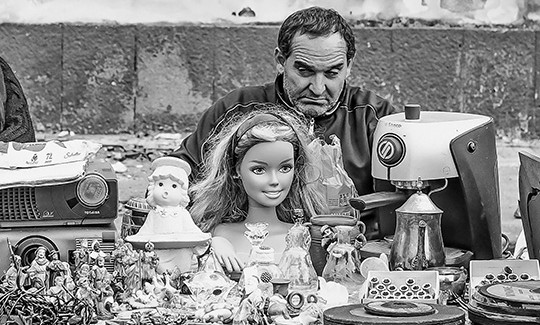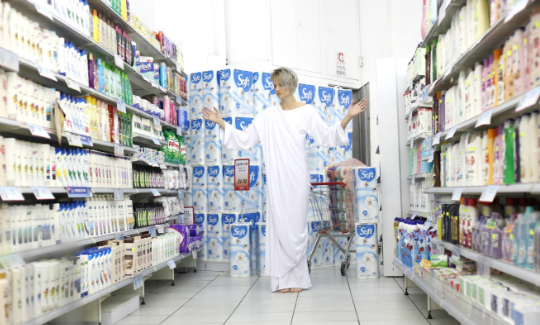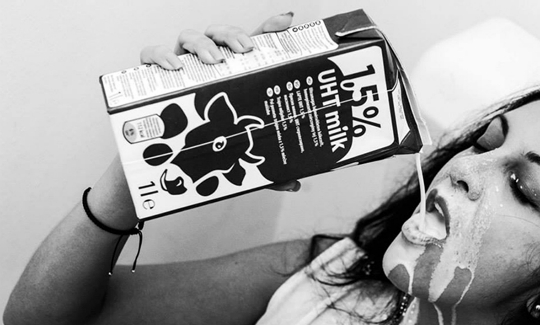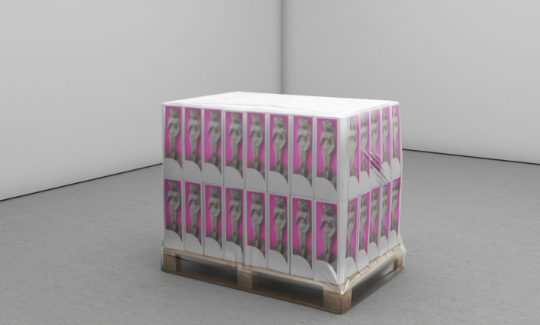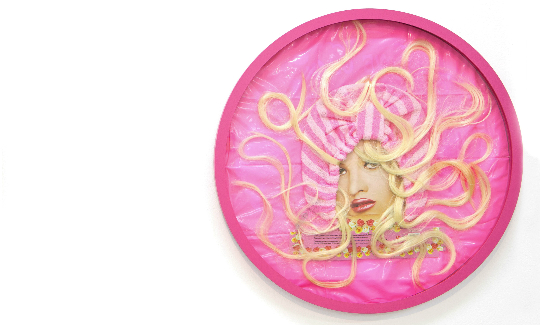Many of the works presented in this show reference the Barbie doll image, as a paradigmatic symbol of the status of women in the global culture of abundance. The Barbie figure excels at generating illusions of glamor in shades of pink and orange: she has a Jacuzzi, installed in a luxurious house; she has a young and handsome husband or lover; and she is a compulsive consumer of fashion and romance. She thus perpetuates the conception that limits the roles of women to consumption and fulfilling man's needs. In this context, the words of Thorstein Veblen are instructive: he compares women in the patriarchal system to slaves. According to him, just as the slave is fed not so he may eat but so he may work, so the woman dresses herself not so she may be beautiful, but so she may attest to her master's wealth.
The strolling of the contemporary female consumer, and female shopping in general, can be linked to the shifting gaze of the flâneur – Charles Baudelaire's urban loiterer. According to Baudelaire, loitering, or strolling, is the privilege of a very specific gender and status. In the context of consumer culture, the thoughtful gaze of the stroller-as-buyer creates a new system of forces and behaviors. Women strolling through the urban space become the subjects of new desires, created via street ads and display windows.
The critical-ironic gaze appearing often in the exhibited works emphasizes the carnivalesque aspects of feminine shopping. The act of shopping itself is depicted as some sort of a subversive practice. In this context, media scholar John Fiske described "woman's place in the mall" as a form of ironic resistance to the idea that "a woman's place is in the kitchen." Fiske argues that the mall is where "women can be public, empowered, and free, and can occupy roles other than those demanded by the nuclear family."
The exhibition manifests the ways in which artists, particularly young female artists, use excess and radicalization as the means of artistic creation. Young female artists often use self-parody to highlight the contemporary woman's plight, adrift in a kind of picaresque adventure among powerful and arbitrary forces in the fields of politics, culture, and art. The main message implied by their art is that the intensity of the works must be exaggerated in order to attract an indifferent audience intellectually deaf to new messages. This requires processes of deformation, perversion, and excess, which can resist the barren spirit of capitalist rationalism. Such processes indicate the possibility of a system of resistance that can, to some extent, offset the total domination of contemporary capitalism.
Participating artists: Li Chen Berlinsky, Vanane Borian, Karl Haendel, Hendrik Kerstens, Alex Kurbatov, Tom Wesselmann, Hena Evyatar

